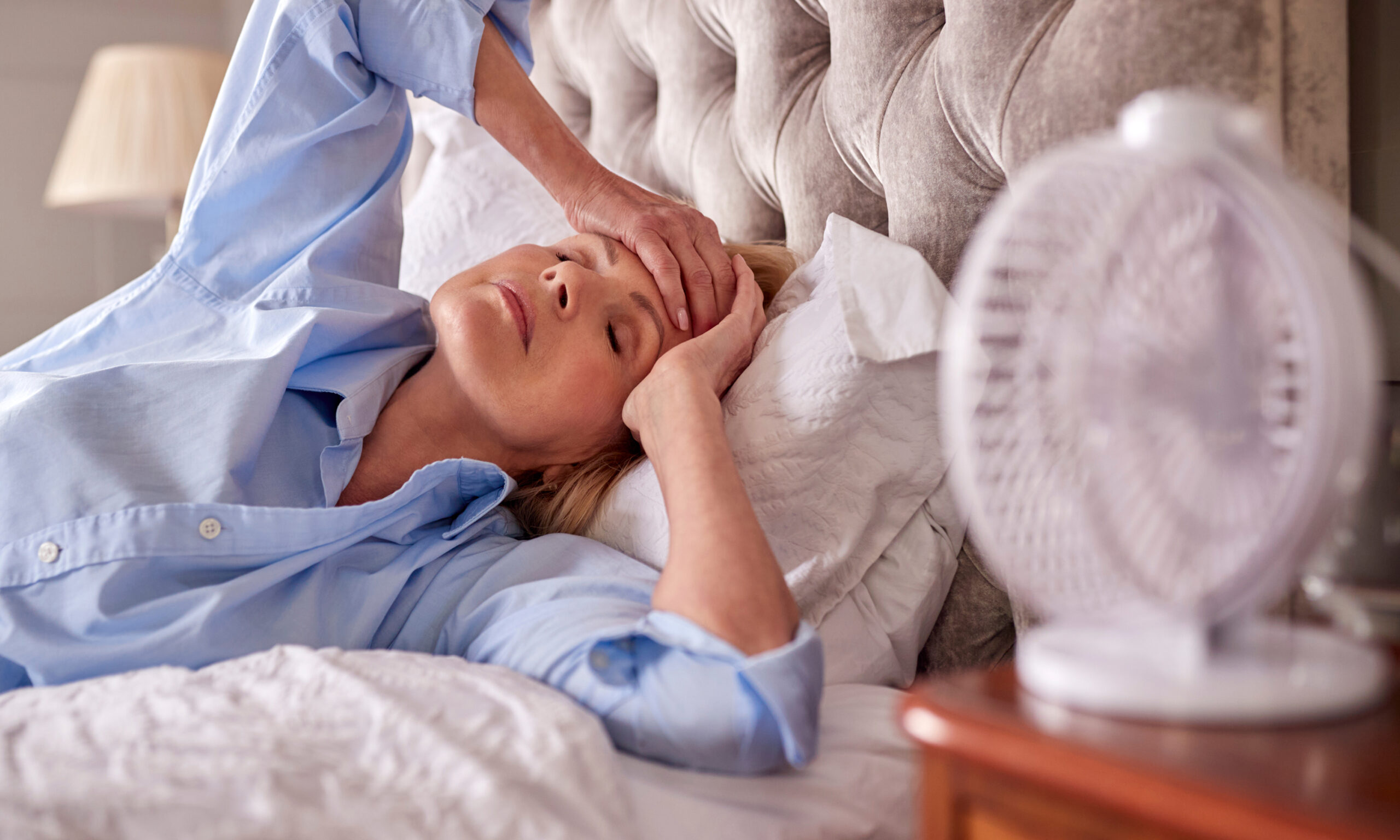Getting older comes with changes to a woman’s reproductive system. Perimenopause is the transitional time of life after the reproductive years and before menopause. It can come with uncomfortable symptoms, but those symptoms can be treated and managed with certain lifestyle adjustments.
What Is Perimenopause?
Perimenopause is the process that your body goes through as you’re approaching menopause. Your ovaries begin to produce less estrogen, which is the hormone that maintains your reproductive system. This creates an imbalance with progesterone, another hormone. During perimenopause, these hormone levels commonly fluctuate, which is part of what causes perimenopause symptoms.
When Does Perimenopause Start?
Perimenopause usually starts in your mid-40s, about four to eight years prior to menopause, but it can vary widely from woman to woman. Perimenopause ends when menopause occurs, which is when your ovaries are producing so little estrogen that they no longer produce eggs and you stop having periods. Menopause has occurred when you haven’t had a period for 12 consecutive months. The average age of menopause is 51.
Can You Get Pregnant During Perimenopause?
Until menopause actually occurs, you can still get pregnant. While the chances of pregnancy decrease as perimenopause continues, it is still possible, so birth control is still necessary if you don’t want to get pregnant.
Symptoms of Perimenopause
Symptoms of perimenopause vary from person to person, but most women experience at least one of the following symptoms.
- Irregular or missed periods
- Heavier or lighter periods
- Mood fluctuations, irritability
- Depression or anxiety
- Low sex drive
- Vaginal dryness
- Hot flashes
- Night sweats
- Needing to urinate more often or urgently
- Sleep disturbances
Diagnosing Perimenopause
Your doctor will usually diagnose perimenopause based on your symptoms, age, and medical history. Hormonal tests are possible, but they are often unreliable because hormones naturally fluctuate. Your symptoms and ruling out other causes for those symptoms are generally what they will rely on for diagnosis. Many women don’t even visit the doctor when they think they are in perimenopause unless they are seeking symptom relief.
Treating Perimenopause Symptoms
While you can’t stop perimenopause from occurring, some medications can help to relieve some of the symptoms.
- Hormone therapy: Estrogen and sometimes progesterone are given to increase hormone levels. In cases of early menopause, meaning before age 40, these hormones are also given.
- Birth control pills: These are used to stabilize hormone levels, which can relieve symptoms.
- Antidepressants: Used to relieve anxiety, depression, mood swings, and hot flashes.
- Gabapentin: Relieves hot flashes.
- Oxybutynin: Used for overactive bladder and hot flashes.
- Fezolinetant: Used for severe hot flashes.
- Vaginal Creams: For vaginal dryness.
Managing Perimenopause with Lifestyle Changes
Many women find that they can relieve symptoms with lifestyle modifications rather than medication.
Eat a Healthy Diet
A healthy diet can help to keep you in balance. Opt for lots of fruits and veggies, whole grains, and lean proteins. Limit processed foods and refined sugar.
Exercise
Exercise helps to stabilize your mood and improves your overall wellbeing. Include both cardio exercise and strength exercises. This can help to prevent osteoporosis.
Quit Smoking
Smoking increases the risk of early menopause. It also can worsen the symptoms of perimenopause, such as hot flashes
Manage Stress
Try to reduce the stress in your life with time management strategies and taking “me time”. You can also try meditation, breathing exercises, mindfulness, and yoga.
Limit Alcohol and Caffeine
Alcohol can trigger hot flashes, and both alcohol and caffeine can disrupt sleep.
Keel It Cool
Keep your house cool and use fans to relieve hot flashes.
Get Good Sleep
Stick with a regular sleep schedule and take steps to improve your sleep. Don’t use electronic devices for at least an hour before bed and do something relaxing instead like taking a bath or reading a book.
What to Expect After Menopause
It’s important to continue to take care of yourself with diet and exercise and lifestyle modifications after menopause occurs because unfortunately, sometimes the perimenopause symptoms continue. Additionally, your risk of certain health issues increases after menopause. These include:
- Cardiovascular disease: Lower estrogen can cause the coronary arteries to narrow, increasing the risk of coronary heart disease and stroke.
- Osteoporosis: Lack of estrogen can weaken the bones.
- Urinary tract infections: Bladder and vaginal tissue may go through changes that can increase the risk of UTIs.
- Urinary incontinence: These tissue changes can cause sudden urges to urinate and an inability to control them.
- Weight gain: Hormonal changes can cause the body to store more fat and lose the ability to burn calories efficiently.
These risks may it extremely important to eat a healthy diet and get proper exercise. Your doctor may prescribe hormone therapy if you’re still having symptoms of perimenopause, but it will not reduce these health risks.
In Closing
Perimenopause is something that every woman has to deal with at some point in their lives. Symptoms vary widely, but certain medications and lifestyle changes can make it bearable. If you need help with perimenopause symptoms, Health Service Alliance is here for you. We are dedicated to providing compassionate, personalized, and accessible care regardless of your ability to pay. Reach out today to learn more.




